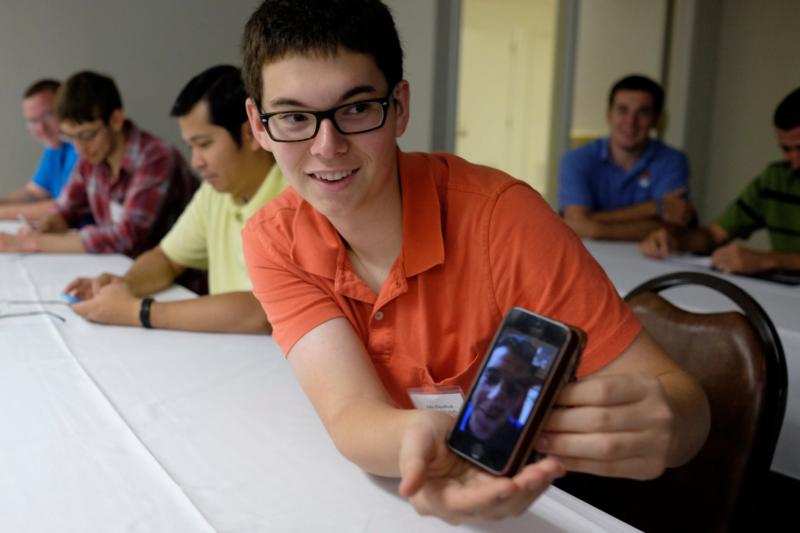VATICAN CITY (CNS) — The Catholic Church and digital media was one theme that had not been getting much press attention at the Synod of Bishops, but finally emerged during the third week of talks dedicated to accompaniment.
“Digital” pastoral care or how the church can more effectively use social media and digital platforms to reach and guide young people was discussed in several presentations at the synod’s general congregations Oct. 16 and 17, Paolo Ruffini, prefect of the Dicastery for Communication, told reporters Oct. 17.
Since so many young people are on social media and mobile devices, “how can the church be in the digital world in an official way and in a consistent way and offer accompaniment there, too,” was just one example of the kind of questions being asked, he said.
[hotblock]
Slovakian-born Bishop David Tencer of Reykjavik, Iceland, told reporters he was surprised to discover that older synod fathers — those in their 60s, 70s, even 90s — were so receptive and optimistic about the digital world.
“The secular world is more conservative,” said the 55-year-old Capuchin, describing how often the media give doomsday reports about how devices “will destroy our youth.”
“The church isn’t like that. The church is very positive,” he said, and understands that the tools and the means of communication are neutral.
“It’s not the fault of the internet, computers, mobile phones, but it depends on the person knowing how to use these things,” he said.
For the church and most people in the sparsely populated country of Iceland, “we are lost without the digital world,” the bishop said. The country’s one diocese of 11,400 Catholics covers close to 40,000 square miles (103,000 square kilometers).
[tower]
One of his parishes ministers to an area over 430 miles wide, he said. “If you wanted to organize, say, a catechism for kids, and there is one child in this village and then nobody for 100 kilometers” and then others located even further away, “how would you organize a teaching” session, he asked.
“With Skype!” he said, saying he may be one of the first people to have put together “Skype schools” for teaching catechism to children online all together in real time.
Bishop Tencer also said that when he kept trying to get young people to read a hardcopy version of the Bible, “very, very few” actually would.
But when he told them they had to download the Bible on their devices, “now everyone works with the Bible and they read it.”
The briefing momentarily turned into a pop quiz when the bishop pointed his finger at reporters saying, “Tell me, try and find where in the Bible it talks about God whistling for the bee. Where?”
When no answers were forthcoming, the bishop said, “my kids can find it in two, three minutes, not a problem.”
“These are things that must be appreciated,” he said.
The digital world is not a sign of decadence, but of development, he said.
“The church moves forward and it moves forward thanks also to the digital world and also thanks to young people because it is they who are leading the way in these things,” he said.
PREVIOUS: Young Salvadorans embrace St. Romero
NEXT: Delegates from U.S. offer their perspectives at synod




Share this story